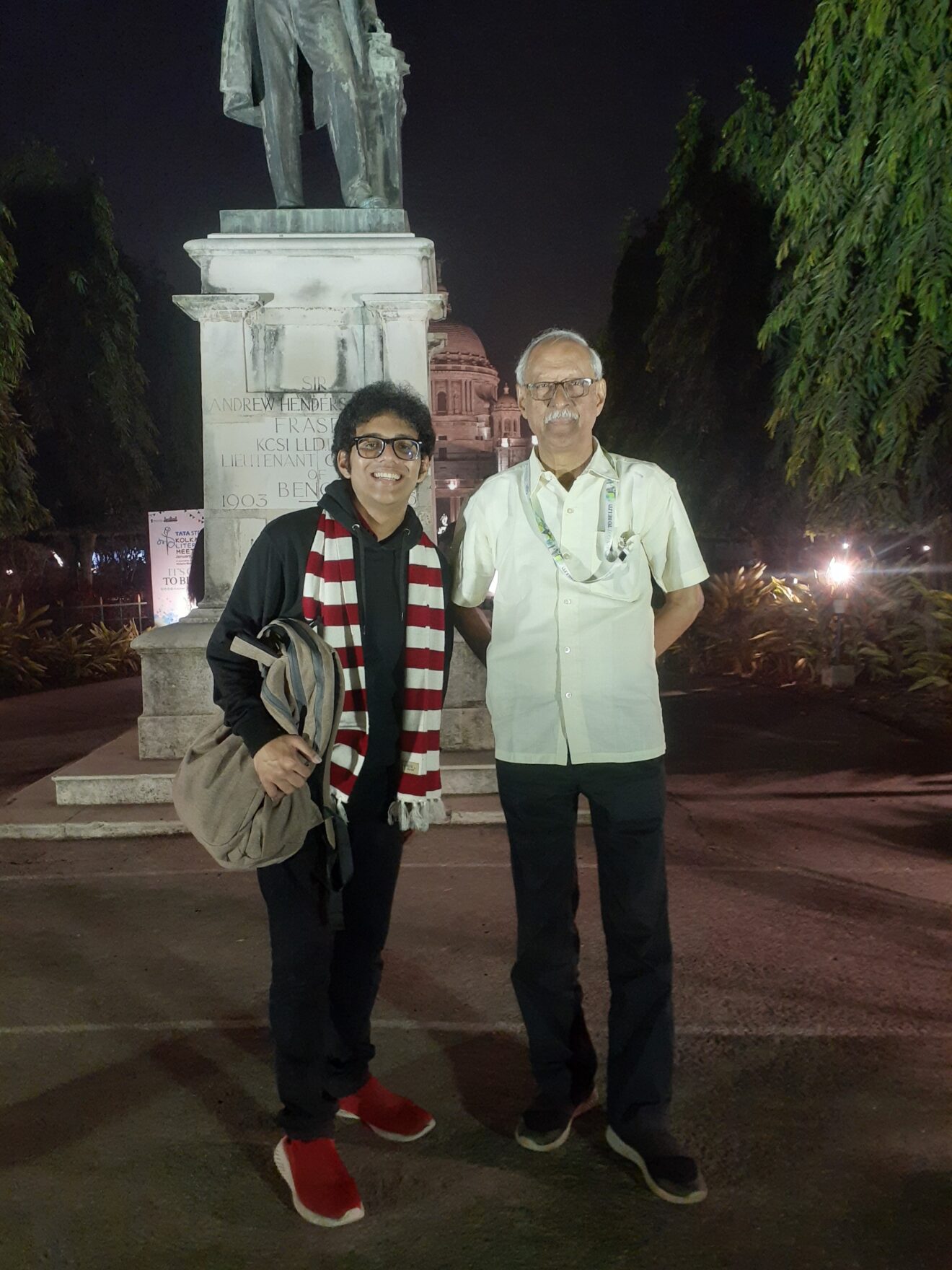Interviewed by Subhadrakalyan

Subhadrakalyan, Damodar Mauzo (From left to right)
Honored with the Jnanpith Award in 2021, the Goan short story writer, Damodar Mauzo’s stories are a delight to explore. He writes in the Konkani language, but his stories have spread far and wide, receiving national acclaim through the process of translation. While he visited the city in January for the Kolkata Literary Meet 2023, Subhadrakalyan from The Antonym had an opportunity to converse with the writer about all things literature and translation…
Congratulations! How do you feel after winning the Jnanpith Award?
Well, when you get any award, you feel happy and delighted. There hasn’t been a change in me since I got the award—why should I change?—but then, I am happy about it.
How was your experience of writing the book The Wait and Other Short Stories?
The stories have come to me over a period of three years. I am not a very prolific writer. I write only when stories come to me. The wait for the stories is sometimes long, and sometimes short. The title The Wait and Other Short Stories is symbolic because I made my readers wait for several years—for this new book to come out. That is one thing. The other thing is, every story, or rather most of the stories, are related to a wait closely or distantly.
Do you like to base your stories on Goa and the people there?
Not necessarily. Any writer writes about the ambiance that is known to him; so, I am comfortable writing about Goa and the Goans. There is no story that can only happen in Goa. There may be some cultural specificity, but then, I don’t think that way. I know the place, and I know the people, and that makes most of the stories centered on Goa and the Goans. But a story can be placed anywhere. And The Ice Melts is located in Kargil.
And some in Bombay as well as in Delhi. The story about the rape…
Yes, that happens in Delhi. And in one of my earlier stories too… if you read The Writer’s Tale… that is a writer writing about a literary festival which is hardly a thing here. The story is about a literary fest where I go… I am the narrator… and come across a Tamil writer. She behaves in a weird way because she never stepped out of her house. She was actually not allowed to since she was from an orthodox family. But I am interested in her stories; they are exceptionally good. She turns out to be a psychiatric case, and she is aware of it. Things happen, and when a writer has his antenna turned on, he can find a story anywhere.
What is your take on the reception of Konkani literature across the country?
It is mainly because of translation, I could reach out to people across different linguistic backgrounds, and I am one among the many writers in the country. I am thankful to my translator who has translated me quite successfully, and to my publishers, Katha, Rupa, and Penguin, because they have given me a larger readership.
So, do you really believe translation is helping regional literature to spread?
Of course. People wouldn’t know me otherwise. And it should happen on an even larger scale.
Could you say a few words for The Antonym Magazine?
I am very happy, The Antonym Magazine is into translation activities because it is only through translation that we can introduce India to Indians. However, it is also necessary to translate literature from one Indian language to another Indian language, but English and Hindi serve as filter languages; as far as my own experience goes; once something is translated into English, it is readily picked up by the other languages. Nonetheless, it is very important that translations are done in other Indian languages too.
The interviewer would like to thank Mr. Saibal Dutta, one of the members of the organizing committee of the Kolkata Literary Meet 2023, for being kind enough to make the arrangements for the above interview.
Earlier, the interviewer had written a review of The Wait And Other Stories, the most notable short story collection by Damador Mauzo. In order to read the review, visit the following link:
Reading The Wait And Other Stories by Damodar Mauzo— Subhadrakalyan
Also, read the second episode of the Bengali non-fiction series on the literary history of the Hungryalist movement, written by the founder of the movement, Malay Roy Choudhury, translated into English by Sraman Sircar, and published in The Antonym:
Follow The Antonym’s Facebook page and Instagram account for more content and exciting updates.


























0 Comments